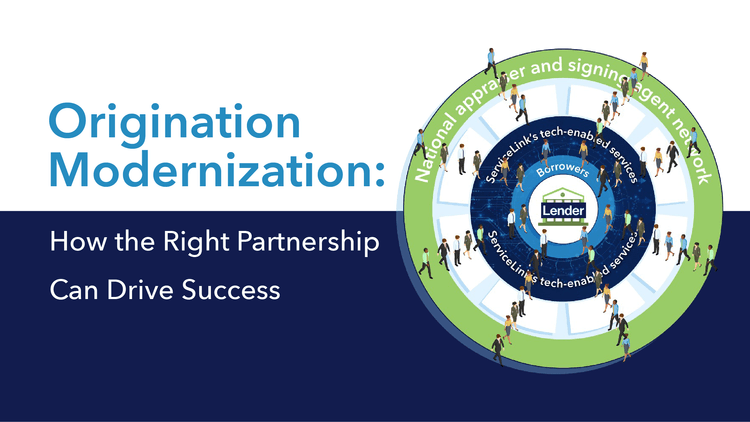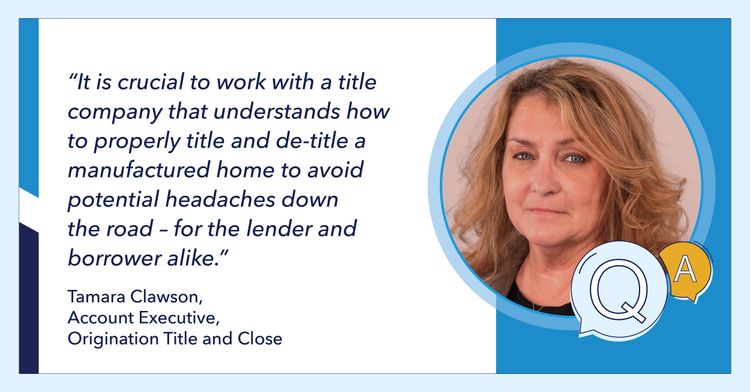Previously published on Forbes.com
Today, housing volume is low while interest rates and home values are high. This intricately woven series of factors is making for a tricky housing industry, particularly for first-time buyers.
In general, those who purchased a property even a few years ago are sitting on a generous helping of equity, along with typically lower mortgage rates than what’s available in the current market. These owners might not be in a hurry to sell because their terms are favorable. Some buyers, on the other hand, who are at the mercy of the market, have to pay a premium just to have a place to call home.
Meanwhile, lenders have been navigating lower origination volumes for quite some time now. As of the writing of this article, the Mortgage Bankers Association reports mortgage applications dipped to the slowest weekly pace since 1995. In fact, its weekly report said, “These higher mortgage rates are keeping prospective homebuyers out of the market and continue to suppress refinance activity.”
So, where can lenders turn for business? The answer might be looking to the past.
If you’re old enough, think back to the 1970s. That was a time when mortgage assumptions were common. In a nutshell, an assumption is when someone other than the original borrower legally takes over an established loan and assumes its payments and terms. However, that trend changed in the early '80s when lenders started enforcing due-on-sale clauses when a property changed hands. You don’t hear much about these types of transactions now, but I believe market conditions are prime for a comeback.
I've seen new articles on this topic popping up online, many aiming to educate potential buyers on this alternative option. They’re undoubtedly getting more eyeballs due to the current state of the mortgage market. Homes are more expensive than ever, and high mortgage rates are causing buyers to hit pause. In the case of an assumption, a buyer could assume a loan and pay lower monthly payments and interest rates, regardless of market conditions around them.
That’s the initial benefit to buyers, but why should lenders pay attention to this budding resurgence? It’s simple: If buyers are talking about it, loan officers have to be ready for the questions and the transactions.
Use Cases
First, let’s address the fact that not all mortgages are assumable. In fact, most conventional loans are not. However, many government-backed loans, such as FHA, USDA and VA loans, are eligible if a buyer meets certain criteria and creditworthiness standards set forth by the lending institution.
There are several use cases for mortgage assumptions, and I believe the potential candidate pool is growing due to steep housing prices. Given the fact that about half of first marriages in the U.S. end in divorce, this is an example of a group that might look to leverage an assumption. In the case of a split where both parties are co-mortgagees and one spouse is awarded the home, the current mortgage could be transferred solely to one person via an assumption.
Another use case where lenders might offer an assumption is perhaps when an older member of a family has to move out of their home and another family member wants to take ownership of the property. A mortgage assumption might come into play if the incoming party wants to take over the payments, live in and legally own the property.
Even today, I've seen some property listings include language that conveys whether the mortgage is assumable, which is another avenue of ownership for a traditional buyer who is being squeezed out of the market. These types of transactions are even catching the eye of some investors who have cash on hand and are looking to leverage equity.
Benefits To Lenders
On the surface, it might not seem like this niche market would be beneficial for lenders to engage in or put any significant marketing dollars behind. Keep in mind, though, that there is still an application and underwriting process in order to qualify the buyer for assumption, so it can be a revenue-generating product.
Plus, at the end of the day, the loan stays with the originating lender and accrues interest. It might not be as lucrative as a traditional purchase or refinance transaction, but in a tough market, having some loans in the pipeline is better than having none.
Assumable mortgages also present the opportunity for repeat business. Because a buyer has to compensate the original owner for the equity they’ve built in the property, many buyers either have to come up with a large payment to cover that equity or take out a second mortgage to cover the difference. Herein lies another opportunity for eager lenders to secure meaningful business.
Getting Ahead Now
Am I saying this is going to revolutionize and fix the problems plaguing the housing industry? Certainly not, but it is an avenue that I believe is underexplored. The more buyers dive into their options, the more lenders need to be ready to adapt to and anticipate growing trends. Educating loan officers on lesser-known methods of financing now will only make a lending institution more prepared and poised to capitalize on opportunities as they come.
Preparation is two-fold but centers on the same concept: education. First, lenders should educate and arm their loan officers with knowledge in advance. It’s prudent to communicate a potential uptick in these types of transactions and provide these front-line workers with information on how to quickly determine if a particular mortgage is assumable. Additional information that would be of benefit is how to identify eligibility criteria for the borrower (e.g., creditworthiness standards, income limits, etc.) and any other caveats that come with these transactions.
Secondly, loan officers should then operate as a trusted, reliable source for their borrowers. Because assumable mortgages aren’t the norm, buyers will have questions, and loan officers need to be subject matter experts when handling these inquiries. Helping buyers navigate the process, including clearly articulating the eligibility requirements, will provide a better experience for the borrower.


